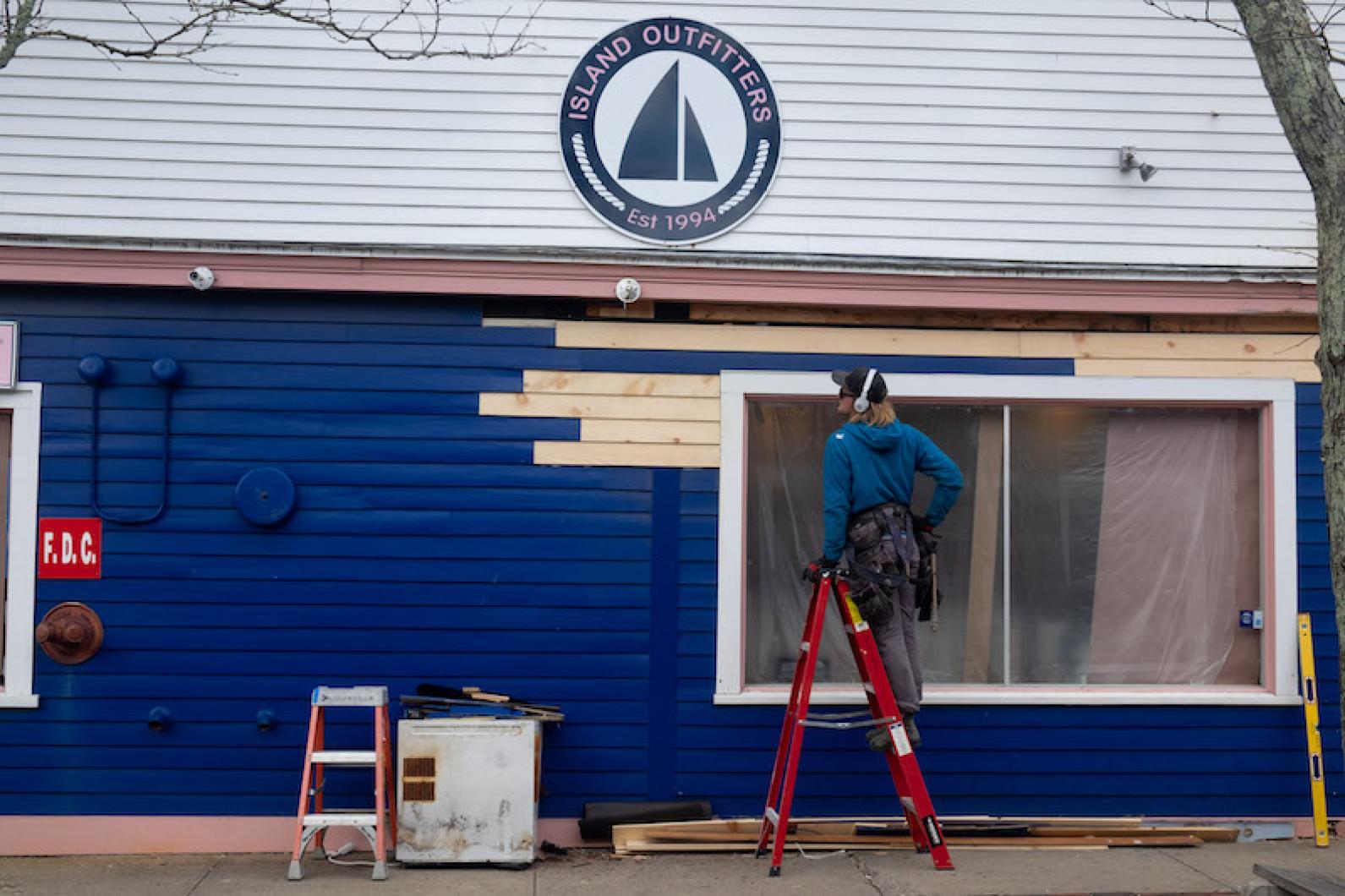Balancing the health of the community and the need to keep the economy in motion, selectmen and boards of health in six towns have agreed to further loosen restrictions on construction and other trades effective May 11. Chilmark was the last town to adop the measures Tuesday afternoon.
The new guidelines, referred to as phase 1.5, allow work to be done by crews of up to five people, while maintaining the strict protocols for hygiene and social distancing established in phase one. Under the phase one guidelines, which took effect April 27, crews were limited to two people. House cleaners, who were previously not included in the back-to-work guidelines, are now laced in and must follow the same protocols as other trades.
The towns have also voted to extend their shelter-in-place orders, which had been set to expire May 4, to May 18 to align with Gov. Charlie Baker’s decision last week to extend the statewide order to that date. In general, Island towns have taken a more restrictive approach to limiting activities than the state requires.
“We are balancing the fact that the governor deemed construction an essential service,” said Edgartown health agent Matt Poole, of the new construction guidelines. “We are keeping our low infection rates and trying to respond the demand of the community in getting back to work.”
In addition to increasing the number of workers allowed at a site, the new guidelines will allow cleaning, construction and other trades to work inside occupied homes starting May 11 under strict conditions. Occupants and workers must fill out a wellness questionnaire daily and workers must “maintain as much separation as possible . . . constructing temporary partitions, or staying in a room with a shut door is advised,” the guidelines state in part.
Though all types of job sites, like landscaping, carpentry and cleaning, must observe certain practices, the guidelines contain more rigid protocols for those specifically working on construction sites. Only construction sites must be authorized by a town official before work can continue. No additional inspections are required for sites that were inspected during phase one.
“We’re going to work with [tradespeople] to make sure they can do what they need to do safely,” Tisbury health agent Maura Valley told selectmen on Monday.
The phase 1.5 guidelines have not yet been translated into Portuguese, though phase one guidelines have. There is also a video explanation of phase 1 in Portuguese.
The construction guidelines were drafted by a working group that includes building inspectors, health agents, town administrators and workers, representing five Island towns, excluding Aquinnah. The decision shows the direction the Island will head, in terms of allowing the workforce to safely grind back into gear, town officials said.
“[Last] week we started construction light,” said West Tisbury town administrator Jennifer Rand, adding that this step is part of a developing plan to allow crews larger than 10 workers on sites, possibly as soon as May 18. “That is the macro-view of what we are approving.”
Some Island residents have raised concern that the measures are premature.
“People seem to be getting ahead of themselves,” said Amy Upton, who identified herself as a tradesperson, speaking at the West Tisbury selectmen’s meeting Friday. “They were working before they were allowed and jumping ahead of [schedule] . . . I have some concerns about how you all are going to be able to enforce any of this.”
Though town officials said most work sites were complying with all requirements, Tisbury building inspector Ross Seavey said there have been some minor violations.
“We have been receiving phone calls on the tip line, reporting that people are violating the protocols,” he said, speaking to the Gazette by phone. “Overall, last week went really well. We are dipping another toe in the water of getting people back to work while keeping those good practices in place . . . If things aren’t working, we can definitely pull back.”
West Tisbury health agent Omar Johnson said continued compliance through each phase is vital rolling out the next. He added that the boards of health, building inspectors and police will continue to educate workers and enforce the guidelines to the best of their ability.
“We’ve taken everything into consideration that we can, and we are making it as safe as possible,” Mr. Johnson said.







Comments (9)
Comments
Comment policy »